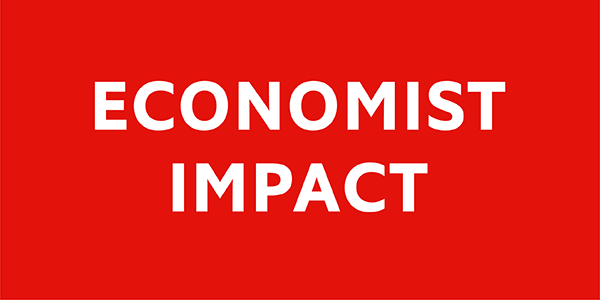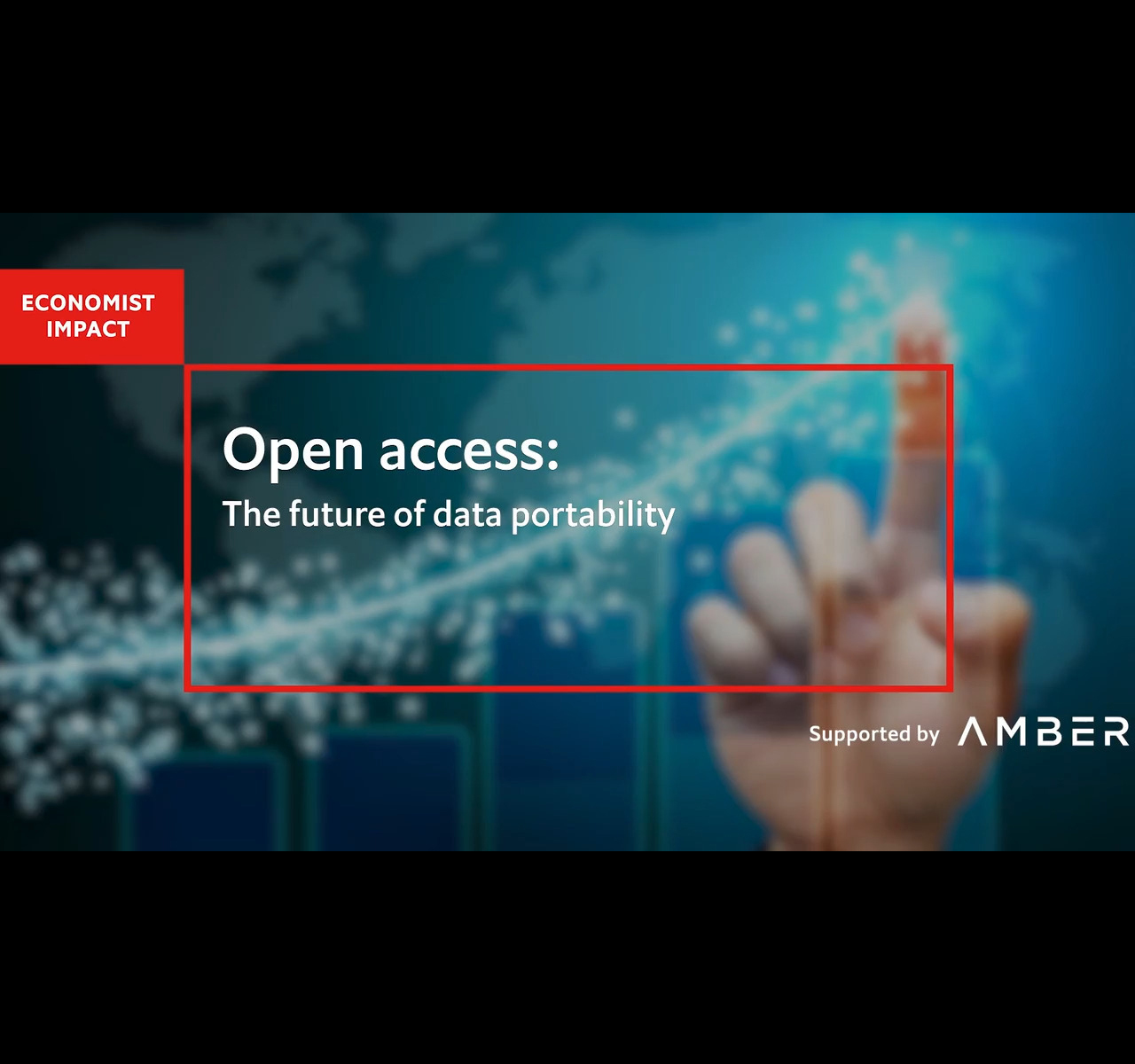Advertisement feature Custom content is written, produced or curated by either a sponsor or by EI Studios, the custom division of Economist Impact. Such placements are clearly labelled as Advertisement, Advertisement feature, Sponsored content, Sponsor perspective, or words to that effect wherever they appear on our website or apps. Neither The Economist news and editorial team, nor Economist Impact’s independent experts, have any involvement in the creation of this content.
From digital assets to digital reality: materialising the metaverse with Amber Group
The metaverse is all the rage these days — and Amber Group recognises its potential as the future of online interaction. Thomas Zhu, chief technology officer and co-founder, discusses the company’s move to incubate Openverse, a web3 platform that aims to empower creators, businesses and brands, and the plan for society to enter into this digital reality.
The metaverse is not a new concept. Science fiction has an eerie habit of predicting technological advances, and authors have, for decades, envisioned people accessing and interacting with immersive, virtual digitalised realities. In fact, the term metaverse originates from Neal Stephenson’s novel, Snow Crash, which was published in 1992.
However, we are getting closer to making the metaverse a functional technology and could be merely five to ten years away from its widespread adoption, according to Amber Group’s chief technology officer and co-founder, Thomas Zhu.

But what is the metaverse? Put simply, it’s a virtual world that users can access — a 3D rendering of the internet. It could be predicated on physical assets or entirely made up. And it can be adapted for all kinds of purposes: keeping in touch with friends across the world, next-generation gaming experiences, or even watching a concert and interacting with other fans at the same time. Its potential is virtually endless, stretching across every industry imaginable.
Amber Group sees this as the future of online interaction — which is why it is incubating the Openverse, a web3 platform that services to empower creators, businesses and brands with the creative tools and infrastructure so that they can reap the full benefits of the metaverse.

Summarising its possibilities, Mr Zhu says: “The metaverse comes to represent the next frontier for growth and a lot of businesses are actually seeking a way to tap into this space. It’s incredible, and it holds plenty of exciting opportunities for brands and creators to upgrade and rebuild their presence in a digital future.”
This move takes Amber Group beyond its financial focus. “That’s not the whole piece of your digital life, you don’t just stare at your digital bank apps… but you get engaged in a lot of other things like social activities, watching movies and talking to friends on the internet.” Mr Zhu also sees the metaverse’s development as a parallel of the internet’s early days: “Just like almost like 20 years ago everyone was thinking ’how can I get a website?’; regardless of if a website is relevant or not, at least I have an online presence with it.” But the difference between the metaverse and the internet now is that the latter channels have proven use-cases — we know how they work and the vast potential for brand reach.


One such way that Amber Groups sees its future use is via fan engagement, for example, a football club. Besides providing digital replicas of accessories and team kits, the metaverse can be home to innovative online experiences such as interactive games. And this is even before the social aspect. “Communities of football fans around the world are no longer limited by the physical distance… Metaverse platforms like Openverse can now connect them through this digital outlet,” Mr Zhu comments.


It is also vital for smaller creators. “Openverse is not just for those big companies, but it is also beneficial for those creators who have been great contributors to the web 2.0 economy, yet did not get the rewards they truly deserve,” he adds. By providing a metaverse-as-a-service, or a one-stop shop for the metaverse as Mr Zhu calls it, the barriers to entry can be reduced, and more types of businesses and creators are able to participate.


The metaverse could be the future of how we interact online, and Amber Group strongly believes in its potential. This is why the firm is investing to incubate its development, bringing society a step closer to being able to step into this digital reality. If one thinks of it as a tool first, aided by the latest technologies, then its possibilities are seemingly endless. Just like how the internet and social media have unfolded over the past two decades, with myriad outlets for creative expression and innovation continually rising, the metaverse too will allow brands and individuals to explore new digital capabilities.


Before we all enter the metaverse, a number of technological barriers have to be tackled first. Security is one of the foremost among these — how can you keep people’s identities secure and ensure that people are who they say they are? Blockchain is one way of solving this problem. Given its characteristics as an immutable ledger, information that is entered cannot be changed once validated. Commenting on Amber Group’s authorisation approach, Mr Zhu shares that “we are developing our Decentralised Identifier (DID) technology and it’s actually a deterministic way to convert your biometric information to your on-chain identity.”
Regulation could also be another impediment to the metaverse’s development — a pertinent issue given that policymakers must often keep up with technological advances. However, Mr Zhu is confident that this is not a problem. “The good thing that I observe now is that different governments and regulations are paying a lot of attention to this. Some of them are quite open to it.”


“Some may question the metaverse’s potential and longevity but there’s always been scepticism expressed towards new types of technology,’’ Mr Zhu says. He also cites recent research showing that, over the next five to ten years, 95% of business leaders expect the metaverse to have positive impact on their industry, which bodes well for the Openverse.1
Different people will have a different understanding of why the metaverse exists and what it can be used for, Mr Zhu remarks. But with more open communities and ecosystems, more participants will be rewarded in their use and experience of the metaverse. This is the heart of the metaverse: communities and people. “The interests of both the platform providers and developers will be more healthy and more sustainable when we consider who the metaverse is for and how it will benefit communities online. This is definitely the future and the way to solve the pain points of the present,” he concludes.

- https://www.forbes.com/sites/forbescommunicationscouncil/2022/08/01/the-business-case-for-embracing-the-metaverse/?sh=1f0062f67898
 1
1
 2
2
 3
3
 4
4
 5
5
 6
6
 7
7
 8
8
 9
9
 10
10
 11
11
 12
12
 13
13
 14
14
 15
15
 16
16
 17
17
 18
18
 19
19
 20
20
 21
21

Content from Economist Impact
Whitepaper | Open access: the future of data portability
The importance of data portability for consumers, businesses and societies is growing globally. This report explores the legislative landscape for data portability at present, and examines consumer perceptions regarding data portability and potential data portability models.
Video | Open access: the future of data portability
This video explores the key findings from the programme covering the legislative landscape for data portability at present, and consumer perceptions regarding data portability.
Back to top













